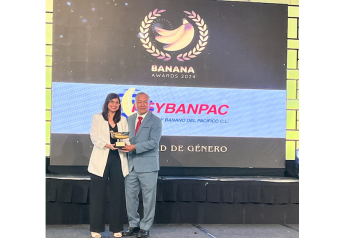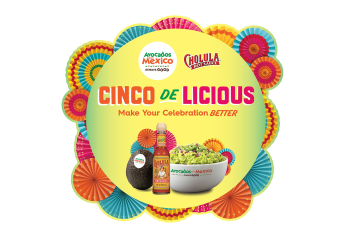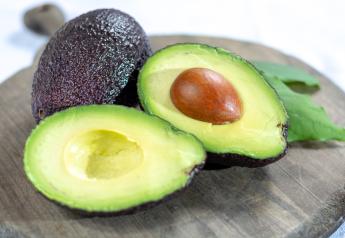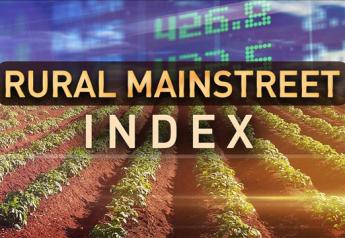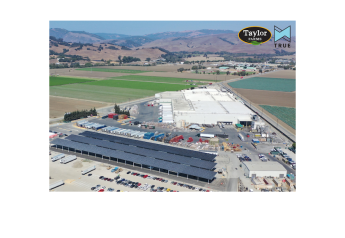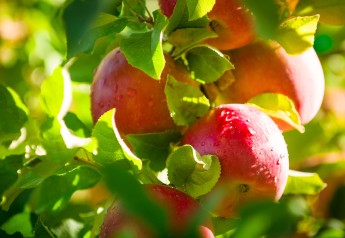Sustainability, innovation in packaging rising throughout the industry
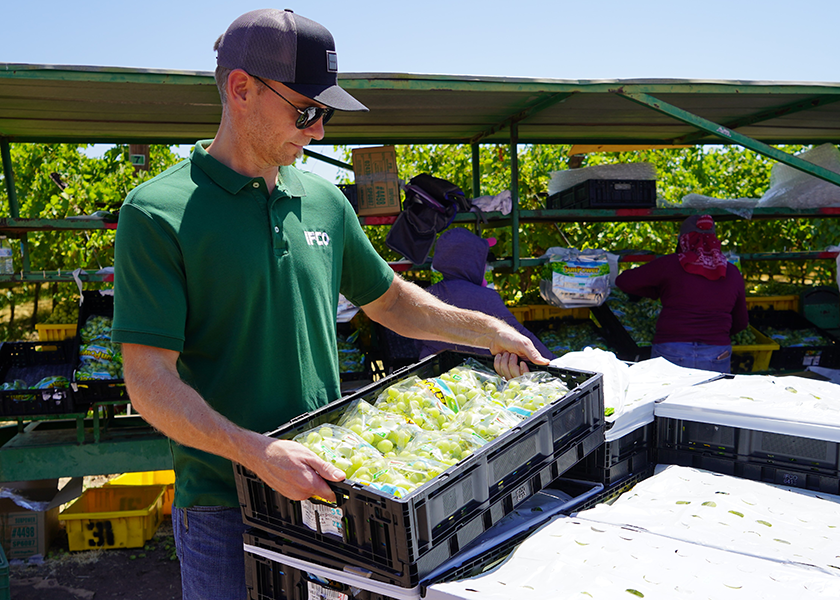
Produce packaging has been a hot topic lately, especially on the sustainability front.
In June, California passed the Plastic Pollution Prevention and Packaging Producer Responsibility Act (S. 54), which requires a 25% reduction of plastics in single-use products within the state by 2032 and a 30% recycling, reuse or composting rate for single-use plastics by 2028. The sweeping legislation is expected to affect companies across the produce industry, from packers to packaging suppliers.
“The law certainly has the right intention, reducing our reliance on plastic by shifting the onus from consumers to the industry,” said John Paap, brand and packaging manager at Jac Vandenberg, a produce importer and distributor based in Tarrytown, N.Y. “Packaging firms will now have to start looking at plastics with better recyclability, or better yet, alternatives to plastic, and the state will need to improve recycling infrastructure.”
That said, Paap doesn’t expect the legislation to have a significant effect on Jac Vandenberg’s business — at least initially.
“Enforcement will take time, and much of it will be placed against the producers of the packaging, it seems,” he said. “However, this is certainly a wake-up call to all in the fresh produce industry that we need to seriously look at our packaging and make sure we are meeting these new standards set by California.”
To find out more about produce packaging trends, challenges and opportunities, The Packer spoke with industry leaders and innovators across the country.
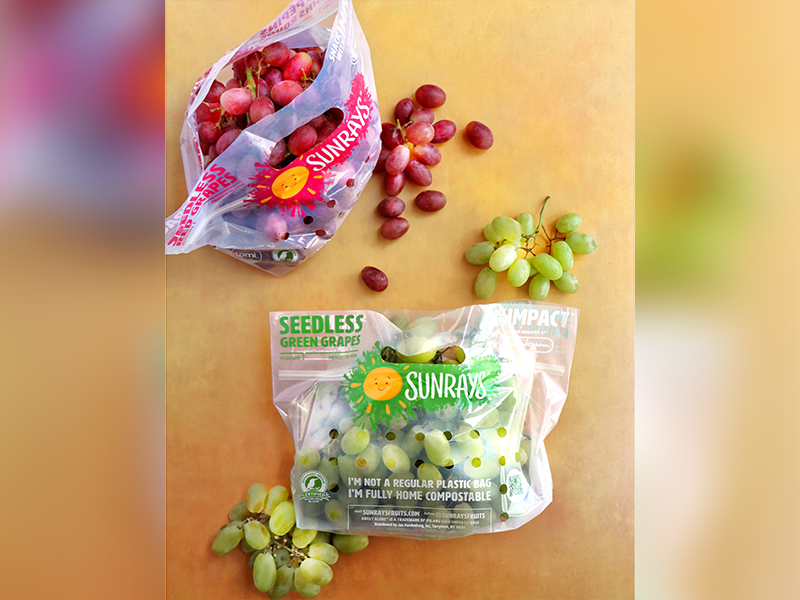
Sustainable packaging at the forefront
Consumer demand for sustainable produce packaging has never been stronger, notes Paap, despite differing opinions on what the term “sustainable” actually means. “One thing is for sure, the consumer wants it and in most cases is willing to pay a premium,” he said.
While many companies are moving toward recyclable packaging, Jac Vandenberg is focusing on compostable materials. At the International Fresh Produce Association’s Global Produce & Floral Show, held in Orlando, Fla., in late October, the company won the Best Sustainable Packaging Award for its home-compostable grape bags — the first product of its kind in the U.S. market.
“We know that recycling is not the answer to our flexible plastic waste problem, as only 8% to 9% of plastics are actually recycled,” Paap said. “Composting is nature’s way of recycling its organic waste. It’s easy, cheap and truly circular since it effectively turns waste into a resource. With our package being fully home-compostable, we are giving consumers the opportunity to ditch the plastic and turn their packaging into nutrient-rich dirt.”
Jac Vandenberg is now working to develop a home-compostable alternative to plastic clamshell containers.
Victoria Lopez, marketing and brand manager at Fox Packaging & Fox Solutions in McAllen, Texas, notes that there is no one-size-fits-all approach to sustainable packaging. Each company must decide which direction to take based on their sustainability goals and where they feel they can make the biggest impact. For Fox, this means investing in research and development for material compositions to ensure compatibility with the recycling stream.
“Right now everyone is doing the best that they can for their individual organizations, but as we move forward, we really need to come up with clear goals,” Lopez said. “At Fox Packaging, our goal is not just a verbally recyclable item, but one that can be recycled across the United States.”
Karen Reed, global director of marketing and communications at Kwik Lok Corp. in Yakima, Wash., agrees that consumers and retailers are increasingly concerned about companies that make dubious claims about packaging sustainability. In November, the company launched its plastic-free Fibre-Lok bag closure in the U.S. market, made from 100% natural cellulose fibers.
“There are products on the market that say they are compostable, but they are not accepted by industrial composting facilities,” she said. “Customers want products that can be composted or recycled, and they want to know for certain that the product is not ending up in the landfill or contaminating the recycling or compost streams.”
To ensure compatibility, Reed said, Kwik Lok continues to invest in materials science. “We want to find materials that are recyclable or compostable,” she said, “which work in the environment they are intended for and are reusable through the life of the product.”
Rick Overholt, vice president of grower sales at IFCO Systems, a global provider of reusable plastic containers for fresh-food packaging, points out that produce growers have also become more focused on sustainable packaging.
“More specifically, a big trend we’re currently seeing is the need to reduce single-use packaging waste, food waste and carbon emissions,” he said. “This used to be a topic that was a ‘nice to have,’ but that’s changing. Our planet needs our help in a very serious way, and it’s up to all of us across the supply chain to find solutions.”
Prepackaged produce and pouches in demand
In the early months of the pandemic, consumer demand spiked for prepackaged produce in containers such as clamshells. Paap says the trend is still going strong.
“Consumers seemed to prefer purchasing produce that couldn’t be touched by other hands,” he said, “and then there’s the convenience element. I don’t see this changing anytime soon.”
Along with demand for recyclable products, Lopez of Fox Packaging has seen a sales surge for pouch packaging — structured, printable bags with gusseted bottoms. Fox recently introduced a hybrid version that combines a stand-up polyethylene pouch with a mesh window for ventilation and product visibility.
“One of the biggest trends right now is a nice, fitted package that just displays itself,” she said. “You just sit it there on the counter and it does the work. I have seen the pouch program really explode within the past five years.”
Packaging that preserves produce quality is another trend, notes Overholt. “With many of our retail partners, we’re seeing a race to have the freshest produce on the shelf to keep customers coming back,” he said. “To support these and other supply chain efforts, we’re seeing a push for more digital innovation and packaging that can be more than just a carrier. More and more packaging is being used to provide valuable insights like transport times and traceability from farm to shelf.”
To this end, IFCO is working on ways to digitally enhance its reusable produce containers with sensors that provide actionable data points to growers and retailers.
Overcoming challenges
Among the biggest packaging challenges for the produce industry, Paap says, is getting buy-in from retailers on sustainable options.
“It is challenging and often frustrating to have found real solutions that will hit retailer sustainability targets, only to be told it’s too expensive or not similar enough in appearance to its traditional packaging counterpart,” he said. “If we’re serious about tackling our plastic addiction and reducing waste and emissions, we need to come to terms with the fact that it will initially require us to spend more money and may not look exactly like what we’ve been used to.”
For Lopez, opportunities lie in collaboration between produce suppliers, packaging manufacturers and others along the supply chain.
“In the past two or three years we have built stronger relationships with our film suppliers, and we've also been having conversations with recycling centers and organizations that previously we may have not have had the opportunity to speak with,” she said. “Now we're at a crossroads where we have a big opportunity to make these changes across the supply chain and have more people at the table talking about the same subject.”


